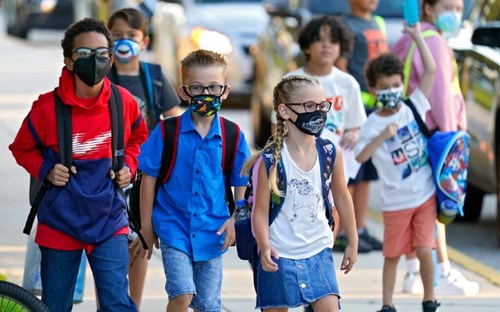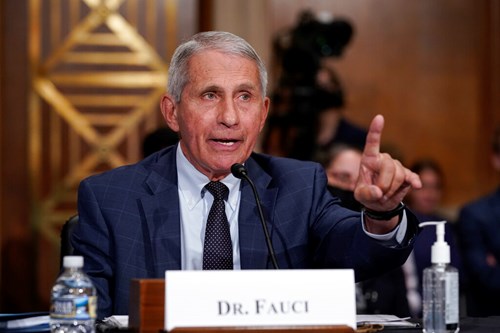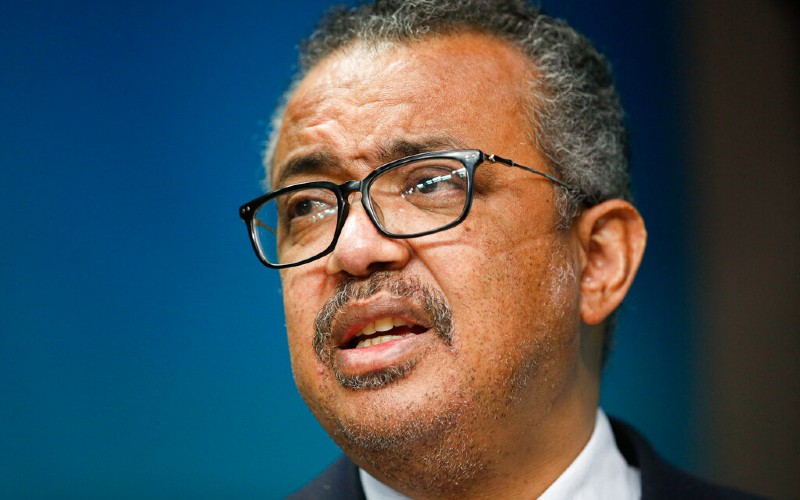It also called for government action now to create the proper structure to correct mistakes in the future.
“When there’s another pandemic, and there will be another pandemic at some point in our lives, we will do the same things again because we’ve learned none of the lessons,” Dr. Jay Bhattacharya, professor of health policy at Stanford University, said on the Washington Watch program Monday.
The report, commissioned by the Committee to Unleash Prosperity, hopes to correct those mistakes through dialogue of what went wrong.
The “Lessons Learned” study is being reported and discussed in various news outlets including The Wall Street Journal, Fox News, Microsoft News and more.
 It was conducted by Steve H. Hanke and Casey B. Mulligan, two PH.Ds of economics, Scott W. Atlas, M.D., a former presidential advisor and member of the White House Coronavirus Task Force, and Philip G. Kerpen, president of the Committee to Unleash Prosperity.
It was conducted by Steve H. Hanke and Casey B. Mulligan, two PH.Ds of economics, Scott W. Atlas, M.D., a former presidential advisor and member of the White House Coronavirus Task Force, and Philip G. Kerpen, president of the Committee to Unleash Prosperity.
The report highlights 10 key lessons hitting lockdowns, school closures, masks, hospitals and much more.
It concludes with a call for Congress and U.S. states to define “public health emergency” with strict limitations on powers conferred to the chief executives. It also calls for time limits for that power which then requires legislation to extend it.
“The idea that we could sort of wing it and come up with the right thing in order to ignore a century of evidence, and then suppress anyone who’s criticizing you...I have no idea why the government thought that was going to work out but it very clearly didn’t,” Bhattacharya told show host Tony Perkins.
The effects have been long-lasting.

“So many people lost their businesses, so many people, their kids became depressed, were up to two years behind in their schooling, many people dropped out of school. There were huge numbers of people who skipped their cancer screenings and now have late-stage cancer,” Bhattacharya said. “We’re in a bad place, and all we really needed was an honest discussion."
The government prevented that honest discussion from happening, the professor said, because of a "censorship regime."
Among the report's conclusions was that pandemic decisions need to be made by elected officials and not outsourced to medical experts.
“There is a serious structural problem when the principal face of pandemic response policy – Anthony Fauci – is the head of the largest federal grantmaking entity on which nearly all medical experts are dependent for their research funding," the report states. "This structural problem created an environment in which it was very difficult for most experts to break with the dominant narratives on lockdowns, masks, or overwhelmed hospitals regardless of their own research findings, experiences, or judgment."
 Even worse, the report points out, the few who did speak out and went against the "party line" were subjected to abuse and punishment for doing so.
Even worse, the report points out, the few who did speak out and went against the "party line" were subjected to abuse and punishment for doing so.
Bhattacharya agrees. Too often, he said, “medical experts” aren’t in tune with the broader needs of society.
“They view everything from the narrow prism of, how can I prevent the disease that I’m trained to prevent?" he said. "Health is broader than the prevention of a single disease as we saw during the pandemic."
Those medically-trained professionals, he further said, were not trained to understand learning loss in children or what a closed-down church does to a congregation starved of community and fellowship.
"They're not actually well-equipped to make the kind of trade-off decisions that need to be made,” Bhattacharya said.







